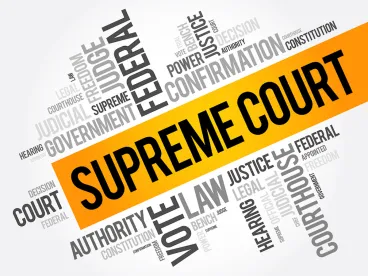Last month, the Supreme Court heard oral argument on Abitron Austria GmbH et al. v. Hetronic International, Inc. and considered, for the first time since 1952, the extraterritorial reach of the Lanham Act. This case presents the opportunity for the Court to establish a uniform test for the Lanham Act’s extraterritorial reach when seeking remedies in U.S. courts and to provide clarity for U.S. companies looking to protect their marks and reputation around the world.
Hetronic, an American company that manufactures radio remote controls for construction equipment, had a licensing and distribution agreement with European distributors to sell its products in Germany and Austria. After terminating the agreement, Hetronic sued the former distributors and related companies (collectively, “Abitron”) in the Western District of Oklahoma for selling identical competing products that used the same product names and black-and-yellow designs. The lawsuit included claims for trademark infringement under the Lanham Act, pursuant to which a jury found willful infringement and awarded Hetronic over $90 million.
Abitron appealed to the Tenth Circuit and argued that the Lanham Act should not reach their foreign sales, which made up nearly 97% of total sales. The Court disagreed. In so doing, it applied a three-step test to decide whether a defendant’s foreign conduct is within the scope of the Act: (1) whether the defendant is a U.S. citizen; (2) if not, whether the defendant’s conduct had a substantial effect on U.S. commerce; and (3) if so, whether extraterritorial application of the Lanham Act would conflict with foreign law. Abitron was not based in the U.S., but the Court found their 3% of sales (€1.7 million worth of products) that ended up in the hands of U.S. consumers through resale was enough to support a substantial effect on U.S. commerce. Abitron did not assert any conflict with other trademark laws, and the Court found that Hetronic had satisfied the “substantial effect” test to apply the Lanham Act extraterritorially. Hetronic International, Inc. v. Hetronic Germany GmbH.
At oral argument before the Supreme Court, Abitron argued against the “substantial effect” test and emphasized that the Lanham Act requires use in commerce. When Justice Sotomayor questioned Abitron about the relevance of Steele v. Bulova Watch Co., which applied the Lanham Act to an American defendant making and selling knockoff Bulova watches in Mexico, Abitron responded that Steele was not in line with modern jurisprudence and should be limited in its vitality. He emphasized the need for international comity, because if foreign defendants were held liable for foreign sales, that would interfere with other countries’ administrability of their trademark laws. Justice Brown-Jackson posed a hypothetical in which a German citizen replicating Coach handbags with Coach’s mark only sold them in Germany but U.S. students purchased them abroad and brought them back to the United States. Abitron argued the Lanham Act would not apply in that scenario because there was no use in commerce if they just kept the bags; even if the students then sold them, Coach could sue the students but not the German seller.
The Office of the Solicitor General argued in support of neither party but against the Tenth Circuit’s test for determining the Lanham Act’s extraterritorial reach. The Government proposed that the Court look not to economic effect but instead to consumer confusion in the U.S., and that the Court further inquire whether there is proximate cause between the infringement and confusion in order to support extraterritorial reach. However, Justice Gorsuch and others were resistant to the practicality of evaluating proximate cause, and Justice Kagan backed the “substantial effect” test as consistent with the heart of Steele’s holding.
Hetronic argued in favor of the substantial effect test, claiming it would limit the number of viable cases and the risk of conflicting laws. Hectronic also contended that personal jurisdiction and the likelihood-of-confusion test would effectively limit the Lanham Act’s extraterritorial reach to lessen the threat to international comity. Then, Hectronic made a textualist argument that the Lanham Act reaches every act that Congress can regulate, including foreign commerce. Lastly, Hectronic asserted that the Lanham Act still needs to be available abroad because not all countries have trademark laws that would provide a remedy to a U.S. citizen. Several of the Justices’ questions and comments suggest they may believe the Lanham Act to have some extraterritorial reach over foreign defendants. Speaking even more directly than Justice Kagan on her reading of Steele, Justice Sotomayor all but dismissed Abitron’s idea that use in commerce is dispositive, given that in the era of the Internet, online advertisements are directed towards U.S. consumers and compete in the U.S. regardless of geographic delivery. However, there was not clear consensus across the board: for example, Justice Alito emphasized the U.S. citizenship of the defendant in Steele in terms of its applicability, while Justice Kavanaugh stated that there should not be a different rule for U.S. defendants and foreign defendants. Regardless of the outcome, this will be a landmark decision for Lanham Act jurisprudence and will inform the relief available in U.S. courts against foreign defendants.


 />i
/>i

